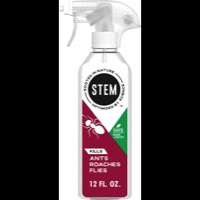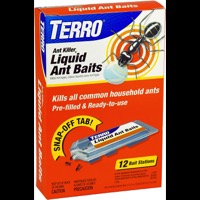How to get rid of Ants
Rid Your Home of Ants the Natural Way
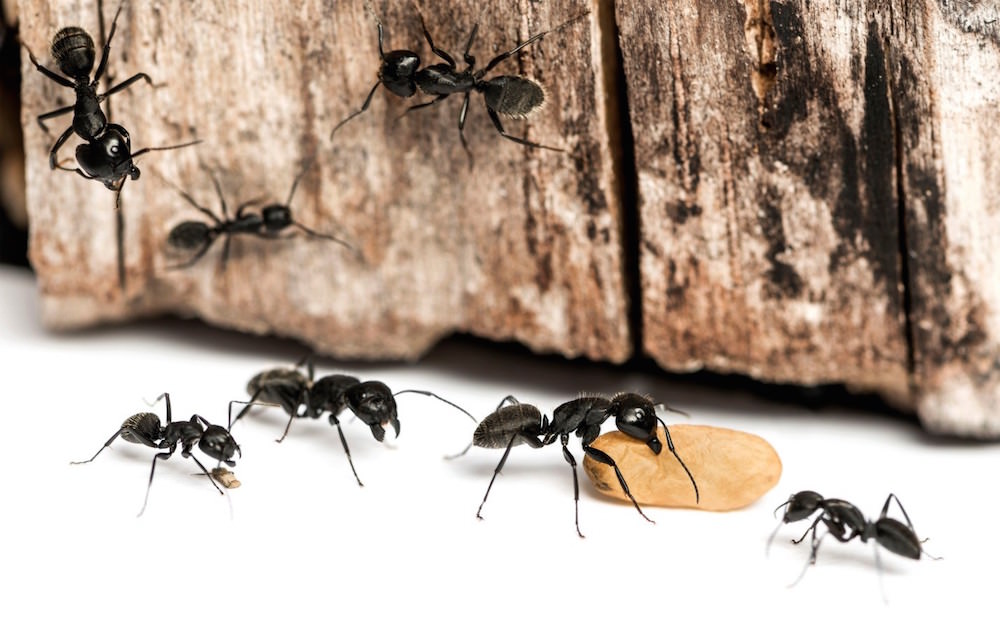
By Jess Simmonds, Expert Reviewer for Repellent Guide
published: Aug 01, 2017 | updated: Aug 01, 2017
Who doesn't remember the common cartoon gag where a rampaging horde of ants disrupts a perfectly good picnic – often to the extent that they actually haul off the food on their tiny backs? Sure, we all had a laugh at the idea back then, but what happens when cartoon comedy turns into real life horror?
Okay, so maybe the ants aren't making off with entire plates of food, but when you find them in your kitchen, that's certainly cause enough for concern. Ants are hungry, greedy, and notoriously single-minded. (If you're not a sugar cube, they won't even look your direction, so good luck asking them to leave.)
Fear not. Whether the ants are marching into your home two-by-two, or in numbers exponentially greater, there are ways to spoil their picnic. Let's take a look.
Types of Ants
Although all ants are pretty much obsessed with food, there are a few different varieties common to household invasions. It's important to know which species of ant you're facing, as this will help you locate their nest and determine what defensive measures are called for.
Little Black Ant
One of the most common ants that people come across is their homes is the little black ant. (That's actually their name, although you can call them Monomorium minimum if you think it sounds better.) These small ants are native throughout the United States and are usually about 1.5mm long. They have a stinger, but as you can imagine, it's so small that it's not much of a threat to you...or much of anything.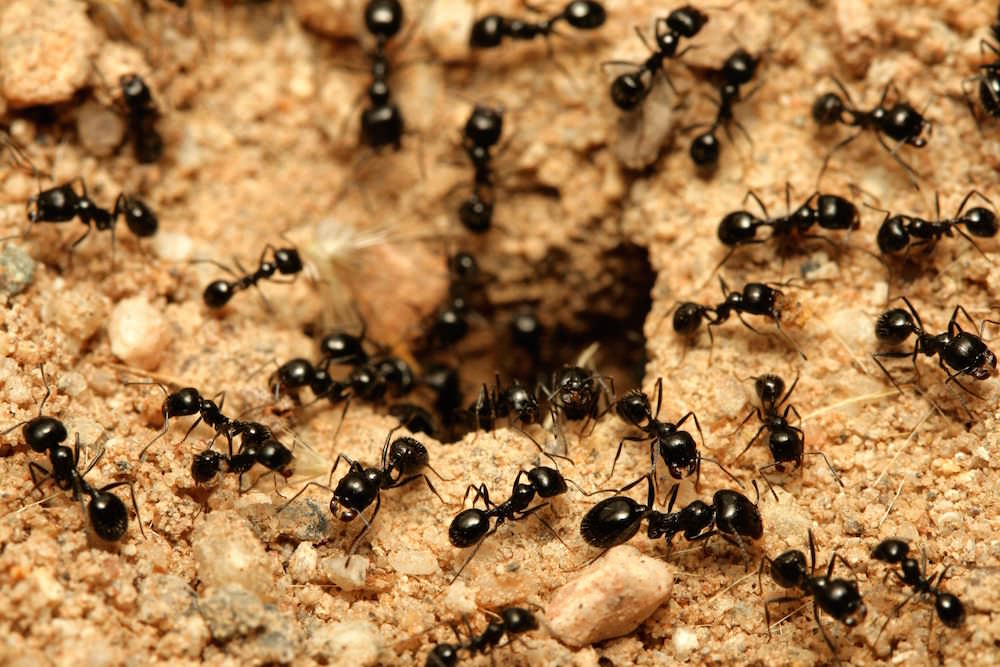 They're omnivorous, which in ant terms means they'll eat anything you would consider food, along with other insects, cornmeal, and plant secretions. These ants typically live in colonies outdoors and will venture inside to search for food (you can usually spot their trails along baseboards, sidewalk cracks, and other narrow passageways.) Getting rid of little black ants is largely a matter of following their trail back to the colony and treating it directly. Alternatively, you can also attempt to seal off their points of entry into your home.
They're omnivorous, which in ant terms means they'll eat anything you would consider food, along with other insects, cornmeal, and plant secretions. These ants typically live in colonies outdoors and will venture inside to search for food (you can usually spot their trails along baseboards, sidewalk cracks, and other narrow passageways.) Getting rid of little black ants is largely a matter of following their trail back to the colony and treating it directly. Alternatively, you can also attempt to seal off their points of entry into your home. Carpenter Ant
Another common household ant is the carpenter ant. Although their name might make them sound constructive, they're actually quite a nuisance. They're very hard to get under control, largely because their colonies can be so hard to track down. They like nesting in moist wood, both inside and/or outside of your home. Removing these ants will often require a professional touch, much like when dealing with termites.
Red Fire Ant
One type of ant that most homeowners will terminate without delay is the red fire ant. They're mostly found in the southern United States and will typically make their mounds in landscaped areas or near structural foundations. Their most notable feature is their painful sting, which they will deliver in large quantities if you happen to step on their nest. Fire ants don't always enter a home, but they have been known to find their way in through cracks and holes.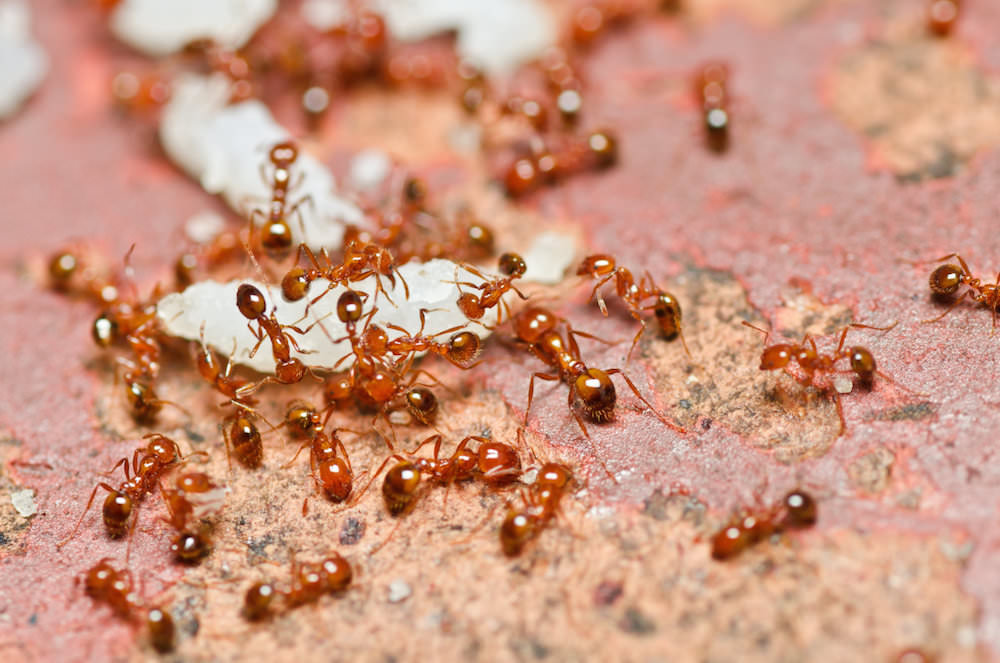
Start With Prevention
As is the case with most pests, prevention is preferred to treatment. Unfortunately, preventing an ant incursion isn't like taking steps against cockroaches or silverfish. You see, ants don't really care if your garage is stacked full of old newspapers or your laundry room is humid. All they want is food, and if you've left any for them to find, they'll show their appreciation by bringing the whole colony for seconds.
That being said, nearly all of the preventative measures against ants involve tasty comestibles. Keep your kitchen clean, as even a few grains of sugar left on the counter can be like ringing the dinner bell. Sweep your floors and seal any food that's not in the refrigerator using airtight containers. You'll also want to be careful about leaving dirty dishes in the sink, and take your trash to the curb regularly. The longer any food lingers out of storage, the better the chances an ant will eke it out.
The other major preventative step is to keep an eye out for colonies. If you see ants nesting around your house, treat the colonies before the ants find their way in. To avoid carpenter ants, look for any moist or broken wood in or near your house. Old sheds and firewood stacks can be a haven for these pests.
Natural Pest Control Options
There are plenty of over-the-counter insect sprays available which can kill ants in short order. Unfortunately, pesticides can be dangerous...especially since ants like to run around spreading the chemicals around your house after they've been dosed. This is why many people prefer one of the following safe, effective, and natural options:
Cornmeal
Remember when I said ants will eat anything, including cornmeal? Well, that doesn't mean they can digest it! If you leave a bowl of dry cornmeal near an ant colony, or near their point of entry, they'll think it's a full-service buffet. Once they stuff their mandibles with the cornmeal, they'll basically rupture and die. It's not a pleasant picture, but it does work.Cinnamon
Cinnamon sticks, ground cinnamon, or cinnamon oil will all work. Why? Because ants hate the smell. Place the spice or dab the oil anywhere that ants are making their way, and they'll stop taking that route fairly quickly.Lemon Juice
The acidity in lemon juice helps break down the trails that ants leave to mark the path to food. In addition, the strong citrus smell offends their delicate smelling organs, which makes lemon juice a great deterrent. For the best effect, use the juice to rub down any area where ants have been spotted -- multiple applications will usually get better results.Diatomaceous Earth (DE)
If you know anything about killing insects naturally, you know about DE. This is the fossilized, remains of a specific type of algae, and if you imagine an ultra-fine powder with the consistency of broken glass, you wouldn't be far off. DE kills insects by scratching them and absorbing their bodily fluids, thus dehydrating and killing them. Naturally, you'll need to spread it where the ants will crawl over it for the DE to be effective.Chalk
This method is actually quite impressive. When you draw a line with chalk, ants won't cross it. It's real-life magic at work (actually, they hate calcium carbonate, the main ingredient of chalk.) Just draw barriers around your doors, windows, and other points of entry.Cayenne Pepper
Sprinkling this near doorways and windows is effective for deterring ants. You can also use salt for the same effect, as ants will generally avoid crawling over either of these spices.Coffee Grounds
The smell of coffee grounds can turn ants away, so you can use it around your doors and windows with good results. You can also spread used coffee grounds around your garden to both deter insects and nourish the soil. Double bonus!
Troubleshooting
Still have ant trouble? Maybe this can help...
Try, try again.
If you've tried one or more of the above methods but still haven't seen results, keep at it. Most natural remedies won't deliver instant results, so you may need to give them a few days or weeks to completely turn around your ant situation.
Long live the queen!
Getting rid of ants has always been a challenge, and there's one major reason: they have a queen. You can kill thousands of ants in and around a colony, but if the queen remains, she will produce more. And if you're only killing the ants that make it into your house, then you're fighting an uphill battle since the queen never leaves the nest. To get rid of a colony, you have to get rid of the queen.
There's always gonna be ants.
While getting them out of your house is a possibility, you're going to have a long fight ahead of you if you want a completely ant-free property. Ants are tricky and they're built to survive; they even use scent trails to plot escape routes from a dying colony to a safer one. They really are a cunning foe! It's best not to look at any victory against ants as a permanent win; the best strategy is to focus on making it as hard as possible for them to come back, because at some point, they will try.
Call the Professionals
Not only are ants equipped for survival, but their social nature makes them even more difficult to combat. Even a small colony can grow exponentially, soon leading to satellite colonies and all-out infestation. It doesn't take long for ants to become a major problem (which is why prevention is such an important step!)
Although the natural remedies above are safe and inexpensive, they might not be up to the challenge of a large incursion of ants. If you've tried the available remedies without success, don't hesitate to contact a licensed pest control specialist to help you handle the ants before they get out of hand.

